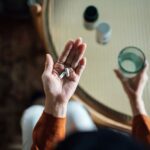Richmond, VA Partial Hospitalization Program

Iron Bridge Recovery Center's partial hospitalization program (PHP) offers flexibility with the benefits of structured treatment.
Iron Bridge Recovery Center is a premier substance use disorder, alcohol use disorder, and dual diagnosis treatment facility in Richmond, VA. We offer an extensive residential program as well as a partial hospitalization program (PHP).
Sometimes called Day Treatment, Partial Hospitalization Programs offer short-term intensive addiction treatment that is a step down from traditional residential care. Day Treatment for Substance Use Disorders can either be used as a transition between residential treatment and outpatient care or as a more structured alternative to outpatient programs.
PHP / Day Treatment Activities
Our Day Treatment Program is a 20-hour-per-week substance use disorder treatment program.
Group meetings cover various topics including multi-family systems, understanding the 12 Steps, in-depth Big Book studies, accessing community resources, team building, peer-to-peer accountability, meditation, relapse prevention, and safety planning.
Clients will also be seen once a week by their primary counselor and once a week by a Mental Wellness Provider.
Services:
Treatment:
Day Treatment for Substance Use Disorders
- Recognizing and dealing with cravings for drugs and alcohol
- Finding healthy ways to express emotions and manage stress
- Communicating honestly and openly with others
- Treating co-occurring mental health disorders such as anxiety and depression
- Practicing self-care activities such as good sleep habits, proper nutrition, and exercise
- Building routines that structure your day in a way that promotes positive life choices
- Being accountable for your actions
Partial Hospitalization Program (PHP)
At Iron Bridge Recovery, we recognize that every individual’s journey to recovery is unique. That’s why we offer specialized programs designed to address specific needs and provide tailored treatment options for residents of Richmond, VA.
How Long Is a PHP Program?
The length of the program depends on the severity of your condition. For example:
For someone struggling with alcohol use disorder (AUD) or substance use disorder (SUD), an initial assessment evaluates what’s being used and how much, the length of time in addition, and other crucial factors. Medically-supervised detoxification may be a necessary component of a PCP, as well.
To address a dual diagnosis, it’s critical to develop a treatment plan that integrates focused therapy, proper medication management, and holistic support. Often, individuals previously received a “one-size-fits-all” mental health or mood disorder application when more customized care is necessary, and a PHP can help.
Some people might also require stabilization for mood disorders or manage withdrawal symptoms during addiction recovery.
What to Expect in a Partial Hospitalization Program
Here’s what you or a loved one can expect at Iron Bridge Recovery Center:
- 12-step recovery approach and community-based meetings
- Early recovery skills development
- Individual and group therapy sessions
- Trauma-informed care, including for veterans experiencing PTSD
- Detailed aftercare and relapse prevention planning
Each person receives unified, informed, and evidence-based treatment from a multidisciplinary clinical team that includes physicians, nurses, addiction counselors and licensed therapists who work with you and your loved ones, delivering compassionate care. We work together to develop a continuum of care plan just right for your needs. The PHP professionals at Iron Bridge Recovery Center conduct thorough evaluations to understand the complexities of your addiction and mental health issues, developing personalized plans incorporating all factors of your life, including background, influences, and behaviors.
What are the Goals of a Partial Hospitalization Program?
The goal of a partial care plan is to help you develop valuable skills essential to managing your sobriety and/or mental health effectively. These may include:
- Being accountable for your actions.
- Recognizing and dealing with cravings for drugs and alcohol.
- Finding healthy ways to express emotions and manage stress.
- Communicating honestly and openly with others.
- Treating co-occurring mental health disorders such as anxiety and depression.
- Practicing self-care activities such as good sleep habits, proper nutrition, and exercise.
Building routines that structure your day in a way that promotes positive life choices.
When Might Partial Hospitalization be Necessary?
There are many reasons why a therapist or another health care provider would recommend that you consider a PHP at Iron Bridge Recovery Center:
- You need a diagnostic evaluation that can’t be performed at a lesser level of care but are otherwise medically stable.
- You’re having difficulty functioning at work, school, or in daily life.
- You have an established history of a mental health or mood disorder.
- Conversely, you don’t have clarity of a psychiatric history, but a psychiatrist, physician, or licensed clinical psychologist has been consulted and confirmed the presence of a mental health disorder that requires this level of care.
Why a Partial Hospitalization Program / Day Treatment May be a Good Choice
PHPs might also be a good choice for someone transitioning to a different level of care, such as outpatient therapy while needing ongoing resources for long-term recovery maintenance.
Choosing a PHP fosters accountability and consistency in managing both addiction and mental health challenges. However, since a PHP is less structured and more flexible than a 30-day stay or more in residential treatment, it’s crucial to have a strong network of supportive friends and family actively involved in the recovery process.


